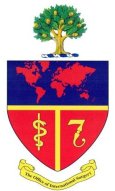| |
INTERNATIONAL
SURGERY STUDENT'S NETWORK (ISSN)
Begun in the Autumn of
2004, this project aims to provide mentoring forum for 1st and 2nd year
medical students at the University of Toronto interested in international
surgery, and in particular to help organize summer electives. Seven medical
students were placed for the summer of 2005. To get on the mailing list,
please contact marvin.hsiao@utoronto.ca
or Brian.Tsai@utoronto.ca.
ISSN Information
Night:
Date:
October 25th, 2005
Time: 5:30 - 7:00 pm
Location: Rm. 2173 Medical Sciences Building, University
of Toronto
MEDICAL
STUDENT ELECTIVES:
Overseas Electives:
The Office of International
Surgery facilitates overseas electives primarily for University of Toronto
medical students. Unfortunately, the Office of International Surgery does
not provide funding for medical students to go overseas. If you are interested
in an overseas elective, please email your current curriculum vitae along
with a letter indicating where you would be interested in going to our
office.
University of Toronto
medical students may be able to obtain funding from the Medical Alumni
Association, please contact the University
of Toronto International Health Program (UTIHP) for student application
forms or the Centre
for International Health.
Tips for successful
electives overseas:
Work Hard - Overseas
electives, particularly in developing countries are work, not play. The
doctors who host you devote a considerable amount of time and effort out
of their already busy schedule to teach you and at least, they have the
right to expect is; dedication, thoughtfulness and hard work. To have
medical students arrive whose real aim is to perfect their tans on the
beach is deeply irritating and will destroy opportunities for future students.
The second point is that medical students are not yet at a level where
they can be very useful; so recognize that this is a learning experience
for you, not a service to humankind. Once you understand this, you will
be able to have a tremendous learning experience and your hosts will be
happy to have your colleagues follow you in subsequent years.
Stay at least 2 months
- It takes a good month to get the "hang" of a new system and
you will have far more useful experience if you can stay for two or even
three months. Likewise, the more senior you are, the more you will be
able to do and the more you will learn. The best time to venture abroad
for clinical rotations is during clerkship, though it is still possible
to have a useful experience earlier in your training. Planning for your
elective should begin well in advance, as you may actually need to exchange
letters with hosting doctors and institutions. The whole world does not
yet have e-mail.
Consider language barriers
- It is wise to consider potential language problems. Much of the medical
world functions in English, but you may have considerable difficulty talking
to your patients if you don't speak their language. Some places will be
much better set up to help you cope with this than others. Try to decide
where you want to go and what you want to do. Be aware that mission hospitals
may require a specific commitment to their particular faith and that this
might be awkward if you are not an adherent.
Dress appropriately
- Most of the developing world is rather conservative in matters of dress
and beach-wear is simply not appropriate for hospital or clinic work.
Pack accordingly.
Donate antibiotics -
If you are going to a place known to be short of medications, contact
Carol Jay at Can-Map, which is the charitable branch of Novo-Pharm (416-412-7469)
and they will often give you a box of antibiotics to donate.
Communicate with hosts
- Contact your hosts and ask what supplies they need, but don't set off
with loads of fancy equipment that will rust in the storage room because
no one can figure our how to use it.
Plan carefully # 1:
Try to decide where you would like to go and what sort of medicine you
would like to experience before sending out too many letters.
Plan carefully # 2:
Inquire carefully about visa licensing requirements before setting out.
Most developing countries do not require licensing for medical students
on electives but some provinces in Canada do.
Essentials
to take with you:
- Stethoscope
- Penlight
- Merck Manual
- Camera
- Guidebook
- Malaria Precautions (appropriate
animalarials, bed-nets, insect repellent)
- Your own supply of diarrhea medications
- Up-to-date hepatitis A&B vaccinations
|



